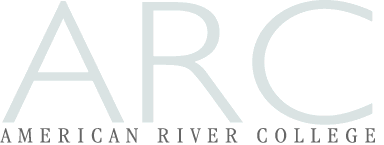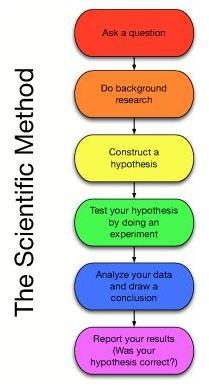
|
Psychology 300 (Online)
|
|
|
Week 2 (January 23 - 29) |
| Scroll down to read about this week's lesson or click here to skip down the page to this week's activities. |
|
Module A - What is psychology?
Lesson 2 - Psychology is a science.  Believe it or not psychology
actually emerged from the study of physiological things, as a result of the
scientific method. It wasn’t
until the scientific method was employed to study psychological principles
that psychology itself emerged as its own “legitimate” field.
Hence it is important for you to understand the basics of the
scientific method, which is the focus of
Objective #8.
As you begin learning
about the scientific method you’ll discover that there is a basic structure
to all research…which includes coming up with the idea that you want to
study (which is called a hypothesis), designing your study, analyzing the
results of the study, and then reporting them. Believe it or not psychology
actually emerged from the study of physiological things, as a result of the
scientific method. It wasn’t
until the scientific method was employed to study psychological principles
that psychology itself emerged as its own “legitimate” field.
Hence it is important for you to understand the basics of the
scientific method, which is the focus of
Objective #8.
As you begin learning
about the scientific method you’ll discover that there is a basic structure
to all research…which includes coming up with the idea that you want to
study (which is called a hypothesis), designing your study, analyzing the
results of the study, and then reporting them.
As you explore the scientific method you will discover that research can be
described as either experimental or descriptive, which will determine the
types of conclusions that can be drawn as a result of the research.
Objectives #9-10 will
highlight the different research designs, their strengths, and their
weaknesses. Additionally
Objective #11- 12 will explore
the essential components that make it possible for a cause-and-effect
relationship to be concluded, which can only be accomplished through a true
experimental design. When it
comes to reporting these conclusions a researcher must first analyze their
data, which is the focus of Objective
#13. As a part of the
evaluative component of the scientific method researchers must also evaluate
whether or not their study has indeed measured what they think they have –
this is called
reliability
and validity. Additionally
researchers will look for “extraneous
variables” which may
better explain the results instead of the variables being studied. Lastly
Objective
#14 will explore the different types of reliability and validity that
are used to assess all research designs.
Lastly as you wrap up the scientific method it is nice to know that
researchers are held to ethical standards which have been created as a
result of historically unethical research.
These standards ensure that the best interests of the research
subjects are always considered above and beyond the goal of research and are
the focus of Objective #15. Once you
have acquired the knowledge of Module A Lesson 2 you will be prepared to
critically evaluate research that you encounter.
|
Weekly Activities |
|
Before completing this week's activities make sure that you have completed last week's activities. Getting Started
Supplemental Materials In addition to using the Module A Objectives I have made the following
tutorials available for students to help with understanding research
methods. Use these as you find them helpful. The tutorials can
be viewed as a webpage
Projects
Quizzes & Exams
|
|
|
|
Lori K. Hokerson,
Assistant Professor |
||||